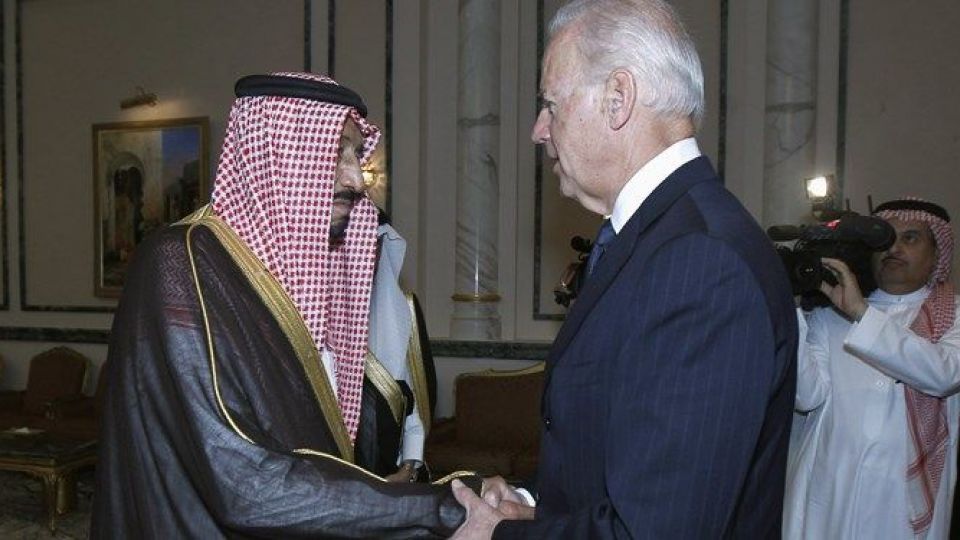Speaking to the website of the Strategic Council on Foreign Relations, Seyed Reza Sadr al-Hosseini, referred to the recent movements of Saudi Arabia and Bahrain in the region after the victory of the Democrats in the US presidential elections and said: Given the developments in the US political arena and expectations that Mr. Biden may make changes in the US foreign policy, some non-independent and dependent countries in the region have put new measures on the agenda.
He added: On the one hand, Saudi Arabia, the United Arab Emirates and Bahrain have focused all their efforts on being able to have full coordination with the next US administration, and just as in the Trump administration they were able to take measures that he favoured, in the near future such measures would be taken in accordance with Mr. Biden’s point of view.
Saudi Arabia, UAE, Bahrain Concerned about Their Own Political Rule
The analyst of the Middle East developments, saying that unfortunately these countries, regardless of the security of the Persian Gulf region, are making statements and taking measures that might have significant effects in the not-too-distant future, termed measures of Saudi Arabia, Bahrain and the UAE as an attempt to provide the opportunity for the Zionist regime in the region and in line with securing the interests of the United States.
Referring to some recent measures of Saudi Arabia, the UAE and Bahrain, including the increased presence of economic and security officials of the Zionist regime in the UAE or Saudi interventionist statements on the nuclear issue of the Islamic Republic of Iran, Sadr al-Hosseini said: They are concerned about their internal situation and their governments without popular support and they seem to be trying to get closer to the new US administration in order to consolidate their sovereignty.
Failed Anti-Iranian Coalitions
Referring to Saudi Arabia’s efforts to improve its relations with Qatar and Turkey with an aim of creating an Arab and regional front against Iran, despite the critical stance of the Democrats on some of the policies of the Saudi leaders in the region, he said: During the past 40 years two councils or coalitions were formed in the Persian Gulf region with the central theme of opposition to the Islamic Republic
Sadr al-Hosseini added: The first was the Persian Gulf Cooperation Council, which concentrated all its efforts against Iran during more than six years of the Sacred Defense (Iraqi war), but not only it did not achieve any success, but today the council is disintegrated due to the many differences between the members. It can no longer be called the “Persian Gulf Cooperation Council”, but it should be called the Persian Gulf Disintegration Council!
The expert on the Middle East affairs described the other coalition against Iran as the coalition of countries in the Yemeni war, explaining that the coalition that was formed indirectly against Iran was an “anti-Yemeni coalition”. Of course, the central target was apparently Yemen, but due to the support of the Islamic Revolution for the Yemeni People’s Movement, this coalition had an approach against the Islamic Republic of Iran.
He pointed to the developments in the field of the Yemeni war that have led to the failures of Saudi Arabia and the UAE, adding: After five years of the function of the coalition, the Yemeni people have achieved victory and changed the conditions of the war. Although the coalition was initially made up of 17 countries, today there is no other country left except for the UAE and Saudi Arabia.
Sadr al-Hosseini emphasized: These are the failed experiences in connection with the formation of the coalitions against the Islamic Revolution. It is true that today they are still trying to reduce the differences between Saudi Arabia and Qatar, but the intellectual-ideological gap between the supporters of the two countries is so great that it is not possible to form a strategic alliance between them.
He said: They might be able to bring them closer together by focusing on the Arab ethnicity, but they certainly cannot bring them to a common ground in terms of fundamentals and interests. Meanwhile, we have been earlier witness to the closeness of Saudi Arabia and Turkey in one case that is in Syria and the two countries, with the coordination of the Americans, sought to overthrow the Syrian political system, which also failed in this apparent coalition against Syria.
Failure of Coalition-Building against Iran in the Region
The expert on the West Asia affairs stressed that due to the fundamental differences between Saudi Arabia and Turkey, the issue of building coalition by them against Iran has definitely failed from the very beginning and cannot bring about a specific change in the region in terms of security.
Saying that the enmity of the system of domination, led by the US, against Iran has not ended and those policies continue either in the Trump or in the Biden administration, Sadr al-Hosseini said Saudi Arabia and Bahrain, due to their performance in the area of human rights, may have problems with the Democrat administration and this has caused concern for the two governments.
He continued: Just as Trump dealt with Saudi Arabia as a ‘milking cow’, the leaders of these countries will act in a way that will satisfy the Biden administration by increasing the ransom or by making apparent changes that may be favourable to the Biden administration in order to keep Biden on their side. But there will be no change in governance because a large part of the American interests in the region will be secured with the presence of these same rulers.
At the same time, Sadr al-Hosseini said: The United States will definitely try to bring these countries closer to the Zionist regime in order to ensure its security in the region more than before, and this issue can have a positive effect on strengthening the rule of Saudi Arabia and Bahrain.










0 Comments